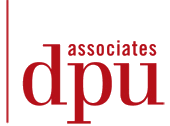
Reflections on project preparation: ADB Secondary Cities Project, Pakistan (Babar Mumtaz)
Submitted by frankie on Mon, 2007-11-05 13:13.
Babar Mumtaz
The views expressed in 'Recent News & Reflections' are those of the author and do not necessarily reflect those of any of the governments, organisations or agencies with whom they have been working.
Over the last year Babar Mumtaz has been the Team Leader and Institutional Development Specialist of the proposed ADB (Asian Development Bank) Sindh Secondary Cities Improvement Project, which has raised several interesting and complicated political issues, which he discusses here.
The official objectives of the project preparation process are to develop a project to improve sustainable environmental management, health and living conditions in the Province of Sindh by assisting the government in developing a participatory strategic planning framework to improve rural and urban environmental conditions, including (i) a cross-sectoral review of development issues, and concerns in the solid waste management (WSM) and water supply and sanitation (WSS) sectors; (ii) policies, strategies and action plans for SWM and WSS sectors; (iii) appropriate tariff methodology and tariff administration guidelines for improved governance, adapted to local needs and conditions.
This was intended to build upon an urban planning and housing development framework that he developed and that was incorporated into Pakistan's decentralised Local Government Act (2001).
The Sindh Secondary Cities Improvement Project is an interesting example of what happens in Project Preparation when the major stakeholders all have their own agendas.
The ADB's main interest in this particular project was to promote innovation in the management and delivery of urban services. It sees this as requiring greater local control and responsibility and using private (or at least non-governmental) entities to do the actual management and operations of the urban services. They would like to see the project initiated in a small cluster of towns - rather than spread across the Province. This also means a relatively modest project - perhaps $30-50 million. ADB seems determined not to go ahead if it cannot get acceptance of the reform agenda.
The Government of Sindh (with an urban/Karachi-based support base), facing elections, is keen to counter opposition claims that it is too Karachi-focused - sees an ADB loan for the rest of the Province as some sort of cachet for its policies - and so wants the loan to match the one for $800 million being negotiated for Karachi Megaproject. It certainly does not want to lose control of it to Local Governments - or to promote devolution. The Government is not worried about conditionalities - it can get cheaper money on the market without any of the ADB strings (though having the basics of the project worked out would certainly be welcomed by the market lenders).
The Local Governments want greater independence - and their hands on development funds - and see the project also as a way of delivering something in time for the 2009 elections - but are not really keen on ideas such as user-charges.
The reality is that there is no real evidence/experience that there are non-governmental entities waiting to take on the delivery of urban services. The recent experience with Karachi Electricity has been a disaster (whatever the reasons for it). Even the much-experienced privately-managed Sui Gas does not manage more than a 35% collection of its user charges.
Finally, we have a large team of some 17 independent consultants - who also have their own agenda - or at least their own timetable and availability - to the extent that we have never had the whole team identified and/or on board at the same time, let alone round a table!
Oh - of course, I don’t need to mention that it being Pakistan, foreign consultants and investors are not exactly clamouring for a piece of the action!
The interest for me has been to see the extent to which these views can be brought together to produce a workable system or urban service delivery. The need is clearly there, and I want to further the devolution agenda, make urban services more sustainable and do think user-charges plus subventions by Local and Provincial Governments are a feasible option. But I also think, that to work, it needs a much longer, more flexible approach to preparatory work on community awareness and government and politician's education process, rather than the conventional project preparation modality.
